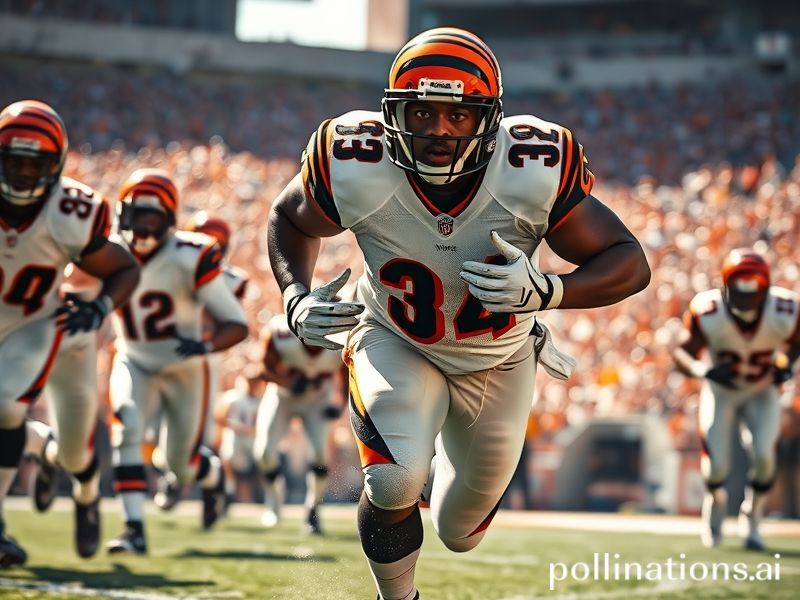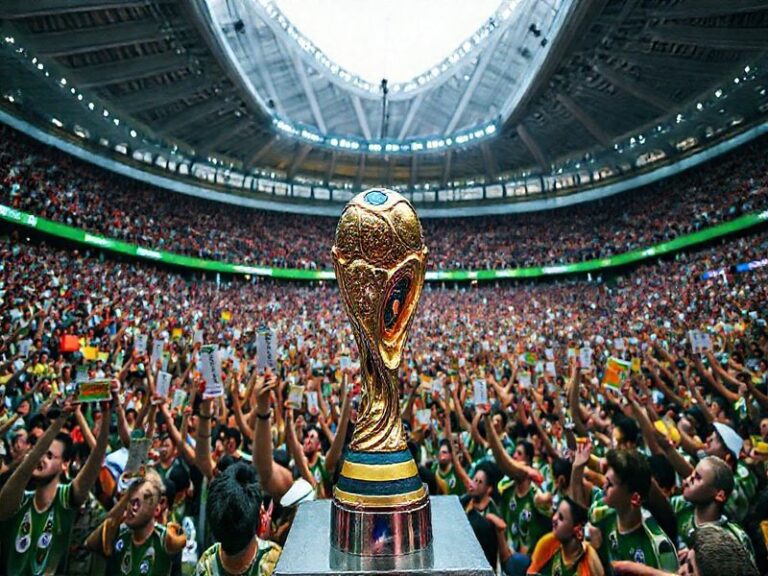Rudi Johnson: How an NFL Has-Been Became a Global Parable of American Collapse
Rudi Johnson and the Quiet Collapse of the American Dream, as Observed from a Safe Distance
ZURICH—Somewhere between the Alps and the next overpriced fondue, it’s easy to forget that in Cincinnati there is a man named Rudi Johnson who once carried a football 1,300 times in a single NFL season, then vanished into the bureaucratic fog of retirement paperwork. To most of the planet—where “gridiron” still sounds like cookware—Johnson is merely another ex-athlete with a Wikipedia entry that ends abruptly in 2008. Yet from this side of the Atlantic, his story reads like a pocket-sized allegory for the broader implosion of American exceptionalism, only with better biceps and worse pension plans.
For the uninitiated: Rudi Johnson was the Cincinnati Bengals’ bell-cow running back during the brief, shining moment when the Bengals pretended to be respectable. Between 2003 and 2006 he punished tacklers with the enthusiasm of a man who’d read the fine print on his contract and realized the fine print was his knees. He amassed 4,221 rushing yards, a Pro Bowl nod, and enough concussions to qualify for a complimentary brain scan. Then, quicker than you can say “NFL collective bargaining agreement,” he was gone—waived by the Detroit Lions in 2009, after which the league’s official records simply note he “retired,” a euphemism that translates roughly to “was politely escorted off the mortal coil of professional sport.”
From an international vantage point, Johnson’s arc is instructive. In Europe, when a 30-year-old can no longer perform his job, society generally shrugs and reassigns him to a less strenuous task—perhaps selling insurance to skiers. In the United States, the same man is handed a gold watch the size of a hubcap and a medical bill the size of Liechtenstein. The contrast is stark. Swiss factory workers receive retraining funded by the state; American tailbacks receive a laminated playbook and a reminder that chronic traumatic encephalopathy is pre-existing. One system hedges against human obsolescence; the other monetizes it, then auctions the highlight reel.
Meanwhile, the ripple effects leak across borders. Nike still sells retro Johnson jerseys to German teenagers who think the Bengals are a type of endangered tiger. EA Sports keeps his pixelated avatar eternally 28, sprinting through digital defenses in a timeless loop—a reminder that American pop culture’s greatest export is nostalgia with micro-transactions. In Lagos, counterfeit Rudi Johnson bobbleheads sit on market tables next to bootleg Chelsea kits and suspiciously sticky bottles of “official” maple syrup. Global capitalism, ever the magpie, has plucked the shiny bits of his career and left the medical bills stateside.
Of course, Johnson himself appears to have adapted. Reports place him in Atlanta, running a trucking company whose fleet boasts the slogan “Always Moving Forward,” a phrase so perfectly banal it could double as a Pentagon press release. One pictures him dispatching semis full of Amazon parcels, each box stamped with the promise of two-day delivery—roughly the same turnaround time his offensive line once gave him before the pocket collapsed. The irony is almost too tidy: the man who once ran for his life now schedules other people to do it for minimum wage.
And yet, the world spins on. In Davos, billionaires toast their latest AI pivot while the glaciers Johnson never got to see recede a little faster. In Beijing, schoolchildren practice tackling drills for a sport their government has officially discouraged. Somewhere in the metaverse, a venture capitalist is pitching “RudiCoin,” a cryptocurrency you can only spend on retro jerseys and painkillers. The planet’s attention span, like Johnson’s cartilage, has finite mileage.
So what is Rudi Johnson’s global significance? Simply this: he is a living footnote to the American century, a reminder that empires mint legends on Monday and medical debt on Tuesday. For the rest of us—watching from cafés where the coffee costs more than an NFL minimum salary—it’s a cautionary tale wrapped in shoulder pads. Work hard, run fast, and when the lights dim, pray your country remembers you exist. Failing that, hope someone in Lagos buys your bobblehead. At least there, the head still nods in permanent, plastic affirmation.







